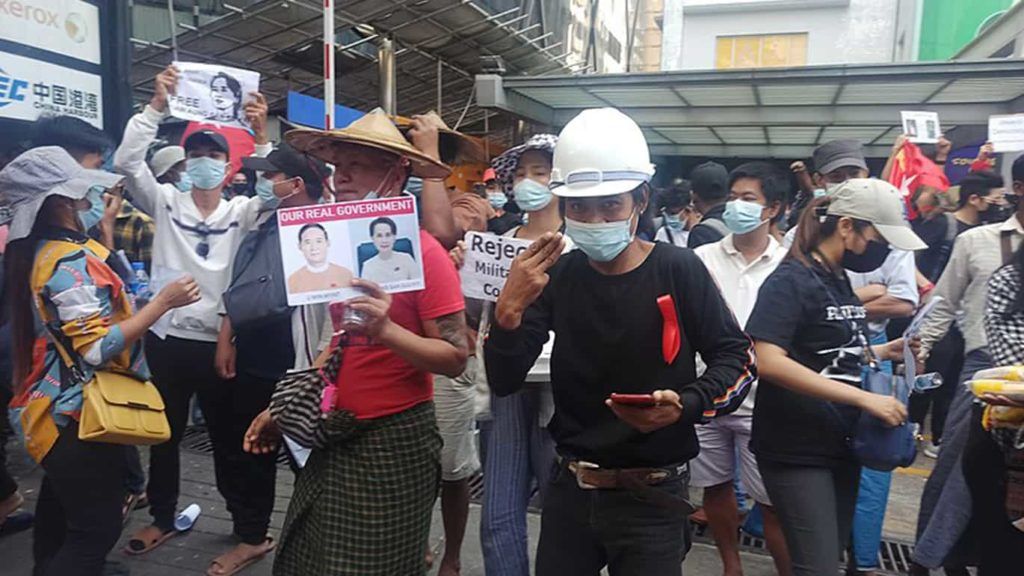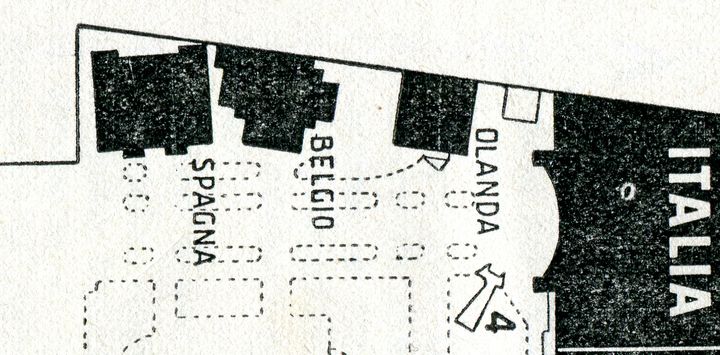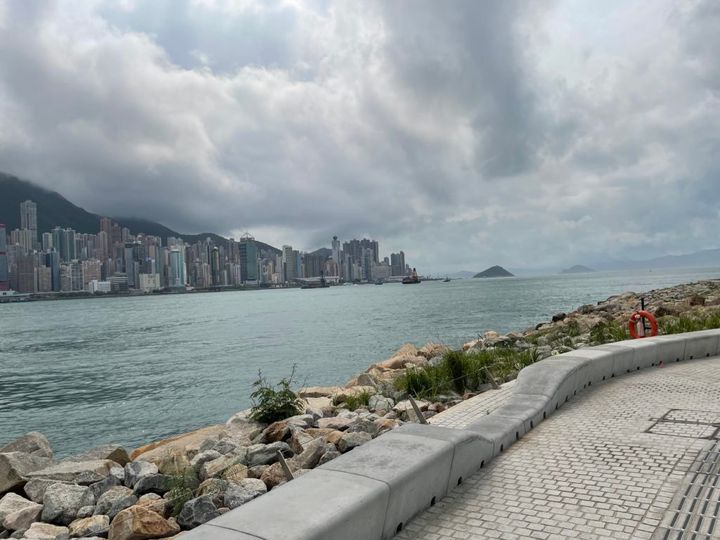Six weeks after Myanmar’s generals staged a coup d’état, all-out civil war is looming over the country while resistance is not abating. Far from it, Myanmar’s Spring Revolution is rapidly transforming into an ever more defiant and unified movement. This is despite – or rather because – of the increasing lethal violence with which the military terrorises its population. Massacres, mass arrests, torture and arson at the hand of security forces have become a daily occurrence across the country.
This weekend the death toll of people murdered by soldiers and police has breached the grim milestone of one hundred. At least 71 people were killed across Myanmar on Sunday alone. Security forces committed the worst post-coup massacres yet amongst Yangon’s poorest in Hlain Thar Yar and Shwe Pyi That townships: industrial workers, including many domestic labour migrants, who have formed the backbone of both protests and general strikes from the onset. In fact, and as in previous revolutions, organised labour has been one of the main pillars of resistance.
Another central cornerstone of Myanmar’s uprising against military dictatorship then and now are students, and more generally youth. From the streets of Yangon to Myitykina, young people continue to lead protests despite full knowledge that they are being shot at with live ammunition. In addition to their bravery, Generation Z is tec-savvy, documenting and sharing the murder and mayhem that Myanmar’s military unleashes on their neighbourhoods with the world via their smartphones. While Myanmar’s generals seek to suppress this resistance with terror, martial law and internet blockades, it is unlikely that it will be able to close the floodgate it opened with initiating reforms a decade ago.
The ongoing mass protests indeed showed how broad the popular consensus against military rule is across the country. Most importantly, the scale and endurance of resistance would not be the same without the forceful support of the country’s ethnic minority communities, who prefer to be called ethnic nationalities not least because they make up about forty percent of the population. It is no coincidence that one of the strongholds of daily resistance in Yangon is Sanchaung, a neighbourhood where many ethnic nationalities live. Resistance has moreover gripped the streets of smaller cities and towns across the country’s ethnically diverse borderlands, despite the heightened risk to protesting in small towns where the dreaded Military Intelligence has retained a much greater presence than in Yangon throughout the decade of “transition”.
To be sure, ethnic nationality resistance to military rule in Myanmar is nothing new. On the contrary, ethnic nationalities have been at the forefront of resistance against the military ever since the country’s independence in 1948. After all, they have since become the main victims of a militarized and ethnocratic state. In fact, the country is home to the world’s longest ongoing civil war between the military and ethnic rebel movements, some of whom have fought for ethnic minority rights, power-sharing and autonomy under a federal constitution for 75 years. Even throughout the past decade of semi-democratic rule, in which the military has receded from everyday life in Yangon and Mandalay, militarised violence remained a permanent feature in the lives of many ethnic nationality communities. In fact, state violence against minorities has not only persisted but escalated in the past years, including under the administration of long-term democracy-icon Aung San Suu Kyi.
Unsurprisingly then, ethnic nationalities demand for more than a reinstitution of democracy under Suu Kyi’s overthrown National League for Democracy (NLD) administration, which has reassembled an exile government under President Win Myint. Together with the newly formed Committee Representing Pyidaungsu Hluttaw (CRPH) – representing ousted NLD lawmakers – this exile government has indeed reached out to ethnic nationalities, including various ethnic rebel movements, who are referred to as ethnic armed organisations (EAOs) in the Myanmar context. In particular the CRPH appears to seek an alliance with the strong-armed wings of the Karen National Union (KNU), Restoration Council of Shan State (RCSS) and the Kachin Independence Organisation (KIO), all of which are currently engaged in increasingly severe battles with the military.
As Myanmar’s military will continue to deploy ever-greater violence against all these pillars of resistance, increased inter-ethnic unity is of utmost importance to counteract the military’s colonial-era ethnic divide-and-rule strategy. That said, looking to lessons from the past is equally important. After all, alliances between the country’s diverse pillars of opposition are anything but new. Indeed, the CRPH would not be the NLD’s first exile government that seeks support from EAOs. After Myanmar’s military brutally cracked down on protests in the aftermath of the NLD’s electoral victors in 1990, NLD politicians formed the exile National Coalition Government of the Union of Burma (NCGUB) in the KNU’s revolutionary headquarters of Manerplaw. For 22 years the NCGUB worked closely together with ethnic nationality resistance movements until it dissolved in 2012 after the military initiated reforms and released Aung San Suu Kyi from house arrest. During the NLD’s reign from 2016 to 2021, however, the party has burned many of its former bridges to ethnic nationality activists and resistance fighters. This was particularly so after Suu Kyi defended military violence against ethnic nationality communities, including offensives against EAOs and the Rohingya genocide.
As the country braces for an even sharper uptick of violence and people fear a full-blown civil war sweeping across the whole of the country, repairing those bridges to ethnic nationality communities seems more vital than ever to fostering genuine unity amongst Myanmar’s diverse revolution, which is once again digging in for the long haul.
David Brenner is a lecturer at the School of Global Studies at the University of Sussex, and author of Rebel Politics: A Political Sociology of Armed Struggle in Myanmar’s Borderlands (Cornell University Press, 2019).
You can follow his work on Twitter @DavBrenner
If you’re interested in writing an article for us, please visit our contributing page.



